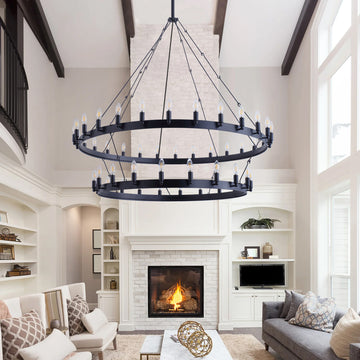Illuminating the Future: A Comprehensive Guide to Pendant Lighting in Modern Spaces
Cuerpo
When it comes to lighting up modern spaces, pendant lighting has become an increasingly popular choice. Its versatility, functionality, and aesthetic appeal make it a go-to option for interior designers and homeowners alike. In this comprehensive guide, we will delve into the world of pendant lighting, exploring its various aspects and shedding light on how it can illuminate the future of interior design.

Understanding Pendant Lighting
Pendant lighting, also known as suspender or drop lighting, is a type of light fixture that is suspended from the ceiling by a rod, chain, or cord. It is typically used to provide task lighting or accent lighting in specific areas of a room, such as kitchen islands, dining tables, or entryways. The design of pendant lights can vary widely, ranging from sleek and minimalist to ornate and decorative, allowing for endless possibilities in modern interior spaces.
Design and Functionality
One of the key advantages of pendant lighting is its ability to combine both form and function. The design of pendant lights can significantly impact the overall aesthetic of a space, serving as a focal point or complementing the existing decor. Additionally, pendant lights offer targeted illumination, making them ideal for tasks such as food preparation, reading, or highlighting architectural features. With the advancement of LED technology, pendant lights now come in a variety of energy-efficient options, further enhancing their functionality in modern spaces.
Placement and Sizing
Proper placement and sizing of pendant lights are crucial for achieving the desired lighting effect in a room. When installing pendant lights over a surface, such as a kitchen island or dining table, it is essential to consider the height at which they are hung to avoid glare and ensure adequate illumination. The size and number of pendant lights should also be proportionate to the size of the space and the intended use. For example, a series of small pendant lights may be suitable for lighting a long countertop, while a large, statement-making pendant light can make a bold statement in a spacious foyer.
Customization and Trends
One of the most exciting aspects of pendant lighting is the ability to customize and adapt it to fit the unique style and needs of a space. From choosing the shape, material, and color of the shade to selecting the length and finish of the suspension, there are endless customization options available. In terms of trends, the use of mixed materials, such as wood and metal, and the incorporation of geometric shapes are gaining popularity in pendant light design. Additionally, oversized and sculptural pendant lights are making a bold statement in modern interiors, adding a touch of drama and sophistication.
In conclusion, pendant lighting offers a myriad of possibilities for illuminating modern spaces. Its blend of functionality, versatility, and aesthetic appeal makes it a timeless choice for interior lighting. Whether used to create a cozy ambiance in a residential setting or to make a striking statement in a commercial space, pendant lighting continues to illuminate the future of interior design.






Comentarios